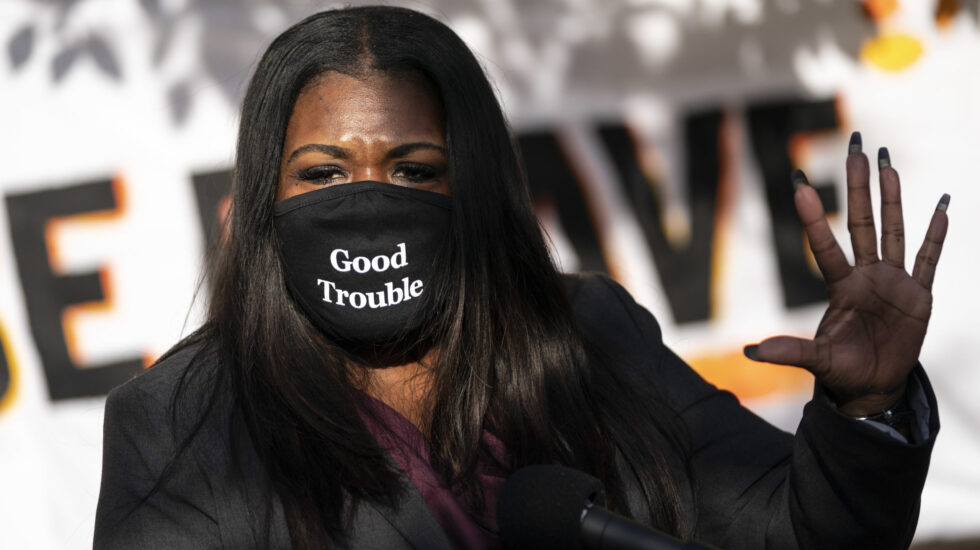Three Congresswomen testified about their abortions on Thursday during a House Oversight Committee on reproductive rights.
Reps. Cori Bush (D-MO), Pramila Jayapal (D-WA), and Barbara Lee (D-CA) all spoke about the difficult decisions they made to terminate their pregnancies.
Bush explained that she was raped in 1994 at a church youth convention in Mississippi. She had just graduated high school. “I was confused, I was embarrassed, I was ashamed,” she explained in moving testimony. “I blamed myself for what happened to me.”
Bush said she missed her period. By the time she consulted with a doctor, she was nine weeks pregnant.
“Choosing to have an abortion was the hardest decision decision I had ever made. But at 18 years old, I knew it was the right decision for me. It was freeing, knowing I had options,” Bush said.
She added, “So, to all the black women and girls who have had abortions and will have abortions, we have nothing to be ashamed of…We deserve, we demand better, we are worthy of better.”
Jayapal told the committee, “I’m testifying before you because I want you to know that there are so many different situations that people face in making these choices. Whether the choice to have an abortion is easy or hard, whether there are traumatic situations or not, none of that should be the issue. It is simply nobody’s business what choices we as pregnant people make about our own bodies.”
Jayapal explained that despite being on birth control, she became pregnant. She was already a mother of a child with severe health problems and had herself suffered through postpartum depression.
She said getting an abortion was “the most difficult I’ve made in my life, but it was my choice, and that is what must be preserved for every pregnant person.”
Lee described getting a “back alley” abortion in Mexico in the 1960s when she was 16. She was surprised by the pregnancy, she explained, because she went to a Catholic school that didn’t offer sex education.
“I was one of the lucky ones” Lee said, adding, “A lot of girls and women in my generation died from unsafe abortions. … My personal experience shaped my beliefs to fight for people’s reproductive freedom.”
Thursday’s hearing comes within the context of a number of restrictive abortion bills cropping up across the country, including a Texas law that bans abortions when a fetal heartbeat could be detected, which occurs before most women know they are pregnant.
Axios adds, “In December, the Supreme Court is scheduled to consider a case on a Mississippi law that bans abortions after 15 weeks, which could potentially overturn Roe v. Wade, the 1973 landmark case that ruled a woman had the constitutional right to have an abortion.”
